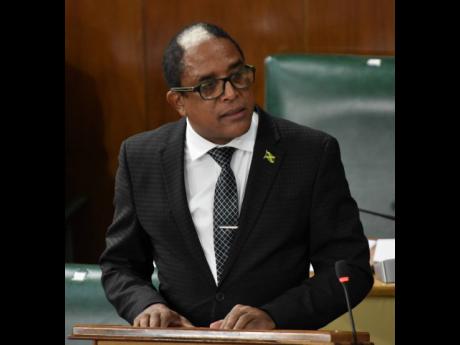Editorial | TAJ fights transparency
The purported invocation of the Data Protection Act (DPA) by Tax Administration Jamaica (TAJ) to deny the disclosure of information on how it used taxpayers’ money is a worrisome development that, if allowed to stand, poses a threat to transparency in government.
In the circumstance, rather than standing behind obfuscation, TAJ must be explicit about what sections of the DPA it interprets as providing it with the claimed cover against openness.
At the same time, Celia Barclay, the information commissioner, who has legal oversight for the management of information under the DPA, must do two things:
• publicly provide her view on the TAJ’s interpretation of its obligations under the DPA;
• and cause to be distributed to all government ministries, departments and agencies (MDAs), guidelines of their responsibilities under the law, making it clear that is not to be a shield against the public’s legitimate right to access government information.
Further, the information minister, Robert Morgan, must assure Jamaicans that it is not the Government’s intention to use the DPA to neuter, or frustrate people’s right to demand information – often a fraught undertaking – from MDAs.
Recently, The Gleaner, following on the auditor general’s (AuG) report that TAJ, the government’s primary tax collector, had over three years spent more than J$400 million leasing two buildings it has not yet occupied, asked the agency for the names of the properties’ lessors.
TAJ declined. It could not provide the information, TAJ said, because of “prohibitions to general disclosure pursuant to the provisions of the Data Protection Act”.
Asked subsequently to clarify its stance, TAJ was, deliberately in our view, obfuscated. It could not “comment further at this time”.
Significantly, Norman Dunn, member of parliament (MP) for South St Mary, and a junior minister in Prime Minister Andrew Holness’ administration, self-identified as the owner of one of the properties.
UNAUTHORISED DISCLOSURE
Passed in 2020, and coming into force last December, the Data Protection Act is aimed at protecting the personal information Jamaicans share with myriad institutions in the private and public sectors. Or, as it is put in Section 2 (3) (b) of the act, to “provide for transparent oversight thereof, that will enable the public and private sectors to strengthen the protection of personal data”.
In other words, holders of, say, an individual’s health records, are obligated to manage that information with due care and respect for the person’s privacy. Or, a company that gathers personal information on its clients cannot – without those people’s consent – seek to monetise that data by selling it to a third party.
It is not this newspaper’s reading of the law that, at least in spirit (presuming contrary interpretations can be brought to its letter), it was intended to prevent the widened access to information on the decisions and actions of the government, so as to bring it in conflict with the Access to Information (ATI) Act.
But even if it is assumed that Dr Dunn, the MP and minister, and the other lessor, had a presumed right to privacy, or of TAJ’s non-disclosure of their names on the grounds that disclosure would, presumably, cause them unwarranted ‘substantial damage or distress’, there is no indication that TAJ sought their views on the matter. It does not appear, as is permitted by the law, that they were given an opportunity to waive that right.
Further, while the unauthorised disclosure of personal data is a criminal offence, information can be released without a person’s specific consent if, according to Section 30 (8) (iii) of the DPA, it is “justifiable in the public interest”.
Already, there are usually significant delays – seemingly aimed at frustrating and demoralising users of the law – responding to requests for information under the ATI Act.
Indeed, it is rare for MDAs to respond, as the law requires, within 30 days of a request. And if they do, it is often to attempt to slither out of acceding to the request by imposing bureaucracy on the formatting of questions, or attempting to create lexical ambiguities or similar loopholes.
Nigel Clarke, the finance minister, under whose portfolio TAJ resides, often laments Jamaica’s low trust environment, which causes the erection of bureaucratic structures (as ramparts against corruption) that limits the speed and dexterity with which the Government can pursue its obligations.
It is partially in response to this perceived problem that he is now undertaking a reform of the Government’s procurement system to make it easier for public officials to acquire and pay for goods and services. His good intention is, however, undermined with actions such as TAJ’s.



